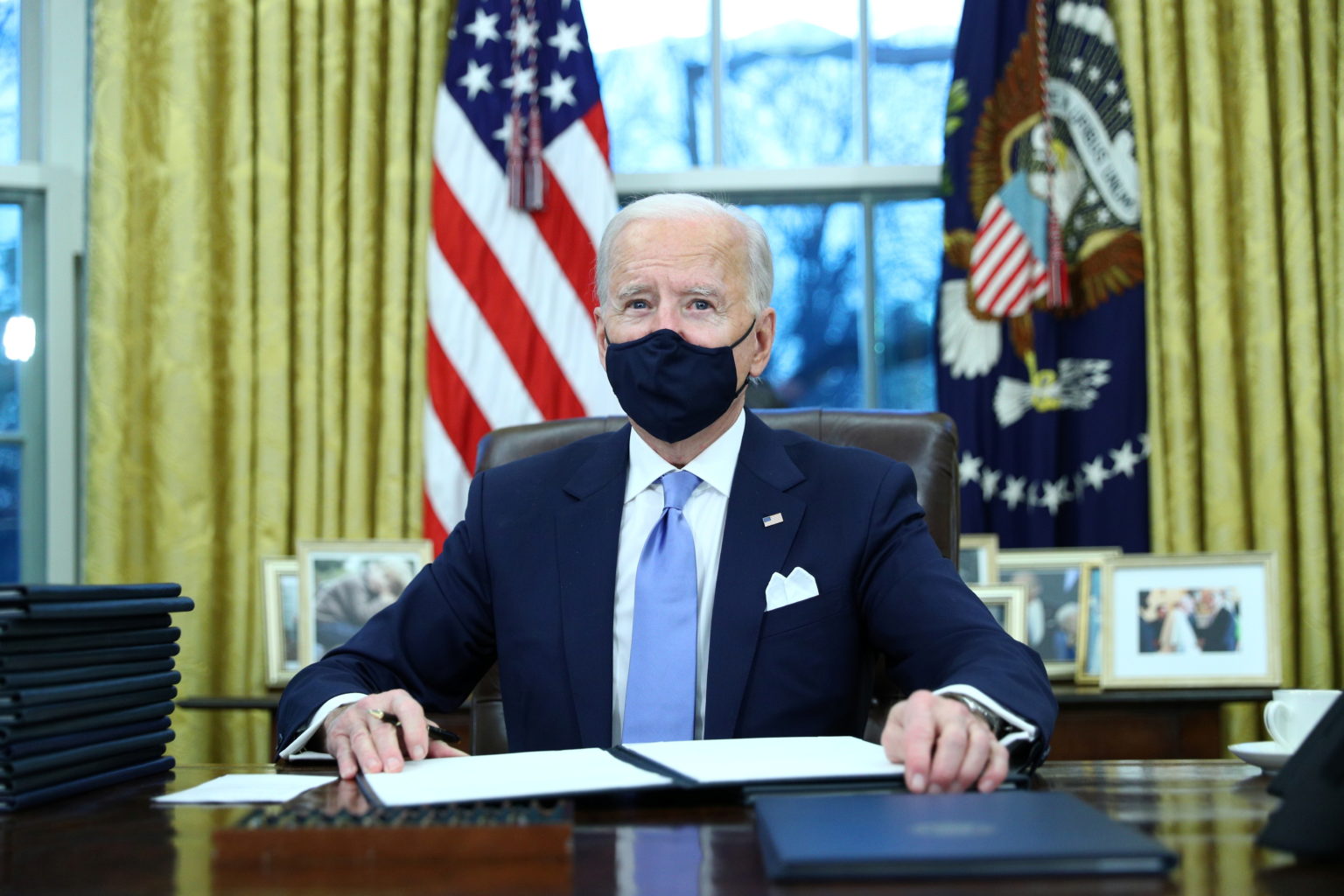
Climate Power: How Biden's first days of climate actions will directly impact Latinos
After four years of climate change denial, President Biden’s administration is taking action on day one.
In one of his first addresses to the nation as President, Joe Biden released a proclamation where he described the climate crisis as having a “force and fury,” and that he believes the nation can “confront the climate crisis with American jobs and ingenuity.”
He has promised to sign a handful of climate-focused executive orders on day one, including rejoining the Paris climate accord, a pledge he made to bring the U.S. back into the global climate pact over the campaign trail. By contrast, his predecessor, a supporter of oil, coal, and gas, made it a point to remove the climate change tab front the White House website and back out of the agreement at the start of his administration.
It will take 30 days for the U.S. to officially be part of the Paris Agreement once again.
The president has also promised to include a temporary moratorium on new Trump administration oil and gas leasing in the Arctic National Wildlife Refuge, reports the AP, and Biden also pledged to revoke a presidential permit for the Keystone XL oil and gas pipeline, in a major win for Indigenous rights groups and environmentalists.
This does not, however, include the Dakota Access pipeline.
Biden has also said he will review a Trump-era freeze on vehicle mileage and emissions standards, and he will further evaluate a Trump move that cut boundaries and protections from certain national monuments.
As part of Biden’s new climate actions, agencies will now also be directed to consider their potential impact on climate change on disadvantaged communities and future generations caused by harmful emissions.
Latinos bear a disproportionate burden of the impact of these emissions.
An October 2016 report by the NRDC and Voces reported that Latinos are 21% more likely than non-Hispanic whites to live in the hottest parts of cities, and Latinos are around three times more likely to die at work from heat-related causes than Non-Hispanic whites.
In the four years since the report was released, the president’s administration did nothing to improve the statistics, even though urban heat studies in cities like Philadelphia found it disproportionately impacts the city’s Black and Latinx residents, a case where zip code — in this case, a zip code’s heat index — directly impacts the quality of life.
Climate Power, a climate action organization told AL DÍA that additionally, more than 23 million Latinos live in areas that violate federal standards for ozone pollution, compared to one in four Americans overall.
RELATED CONTENT
“Ozone increases due to oil and gas emissions during the summer ozone season. Latino communities are burdened by 153,000 childhood asthma attacks, and 112,000 lost school days each year,” said Antonietta Cadiz, a Climate Power spokesperson.
She added that more than 1.8 million Latinos live within half a mile of existing oil facilities and nearly 1.78 million Latinos live in countries that face a cancer risk above the EPA’s level of concern for toxic chemicals emitted by such facilities.
Rejoining the Climate Agreement has multiple impacts, but specifically for Latinos, it will help reduce emissions that can save millions of lives.
Biden’s proposals come with boosts to the economy as well, rooted in clean energy. It calls for investments in developing a clean energy economy and green infrastructure that will eventually lead to the creation of 10 million new jobs.
“The Biden plan already commits to providing low-income and communities of color preference in competitive grant programs. Today, Biden commits to go even further and target 40% of his historic investment in a clean energy revolution to disadvantaged communities,” reads the climate justice plan.
Cadiz pointed out that solar and wind power generation already employs a higher percentage of Latino workers, referencing data from the National Association of State Energy Officials, but she said the figures stand in “stark contrast” to a recent study that found that Black and Hispanic communities living near fossil fuel facilities are exposed to more pollution — yet have fewer of the jobs in the industry.
Biden’s administration is making it clear that it is ready to act on the climate from day one.
Unlike President Obama’s smaller steps to tackle the growing crisis and Trump’s utter inaction, the Biden-Harris administration is expected to outline its first actions in a comprehensive plan to address the climate crisis and build a clean energy economy from the start — and Latinos will be directly impacted from the ensuing legislation.











LEAVE A COMMENT: